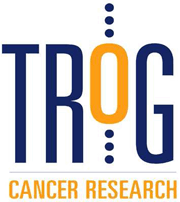Summary of the SUPREMO Cancer Trial
You have recently been diagnosed with early breast cancer, which has been completely removed by surgery. Anti-cancer drugs in the form of chemotherapy or hormonal therapy (or a combination of both) will also be given to you as part of your treatment.
Another therapy that is offered to some patients with your type of cancer is radiotherapy to treat the site of your recent operation to remove your breast (mastectomy). We use radiotherapy to reduce the risk of your cancer coming back in the same place. When it is given along with anti-cancer drug treatment it may also improve long-term survival.
Postoperative radiotherapy is routinely given to patients at higher risk of recurrence than you (for example when 4 or more lymph nodes are involved underneath the armpit or the tumour is large). In patients like you, where there are less than 4 lymph nodes under the armpit involved by cancer or there are no lymph nodes involved but there are other features of the cancer which increase the risk of the cancer coming back, it is not clear whether postoperative radiotherapy is needed.
One of the purposes of this trial is to work out the risks and benefits of postoperative radiotherapy to the chest wall in patients like you who are at intermediate risk of a recurrence of breast cancer.
More information about taking part in clinical trials is available from the National electronic Library for Health is an invaluable resource | Hot topic | Guidelines in Practice
Who is eligible for the trial?
The trial will involve 1600 women. Everyone taking part in the trial will be a postoperative breast cancer patient who has had a mastectomy, and who has an intermediate risk of the cancer returning. An intermediate risk is diagnosed when there are less than 4 lymph nodes under the armpit involved by cancer or there are no lymph nodes involved, but there are other features of the cancer, which might mean that it is more likely to come back.
What happens if I decide to take part?
If you agree to take part, you will be asked to give us your written consent. To work out whether or not you will receive radiotherapy as part of the trial, your specialist will contact a central office, which runs the SUPREMO trial.
The study office will check some details about you, your disease and the treatment you have been prescribed and will use a computer to allocate your treatment. You will have the same chance of receiving radiotherapy as not receiving it. Your specialist will be told whether you have been allocated a course of radiotherapy. You will be asked to fill in a questionnaire, which will monitor how you are feeling and managing at home. You will also be seen twice in the first year after surgery in hospital clinics for a routine examination. A doctor will then see you once a year to assess your medical condition. We recommend that you have a breast X-ray (mammogram) of your other breast at least every second year for 10 years.
What happens if I decide not to take part?
If you decide not to take part in the study, you will receive the usual high standard treatment that we currently give to all patients with early breast cancer. You may be offered radiotherapy and will be followed up at the surgical outpatient clinics according to local hospital procedure.
What does radiotherapy involve?
Radiotherapy to the chest wall (where your mastectomy took place) is usually carried out over 3-5 weeks, normally as an outpatient. Your specialist may also recommend radiotherapy on the same side to a part of the glandular area above your collarbone (known as the medial supraclavicular fossa) or to the glandular area beneath your breastbone (known as the internal mammary chain). On your first visit a series of measurements are taken to plan your further treatment. The radiotherapy is normally given to the chest wall in a small dose each day. Treatments normally take about 10-15 minutes per day. Treatment is given on weekdays. No treatment is given over the weekends or Bank Holidays.
What are the possible risks of taking part?
Like all treatments, there may be side effects with radiotherapy. It may cause skin reactions leading to chest wall tenderness and itching. These may develop later on in the course of radiotherapy and usually settle within one month of the treatment finishing. You may also have chest wall pain, which is usually mild and intermittent. Very rarely radiotherapy can cause either inflammation of the lung leading to shortness of breath or cause the ribs to fracture.
The possible risk of not being given radiotherapy is that there may be a slightly higher chance of breast cancer returning compared with women who have received radiotherapy. However in women with your type of cancer and with your level of risk, the chances of the disease coming back in the same place are small. If the disease did come back at the site of your mastectomy, a course of radiotherapy to your chest wall would be considered.
Are there any benefits to taking part?
Whether or not you decide to take part in the study, you will receive the highest standards of care. The information we get from the study will help us to understand how best to treat breast cancer. It will help us to measure the advantages of radiotherapy in women with the type of breast cancer that you have.







